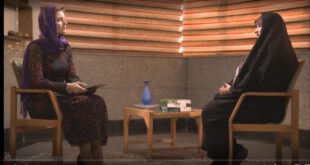Suffering is good in the sense that it is the cause of movement
Firstly, suffering is aesthetic and its emergence takes precedence over cognitive awareness and perception. What we call cognition is preceded by suffering, and it is better to say that aesthetic perception precedes cognition in humans. The second point is the issue of educability and technology. Technology was found to facilitate access to natural resources needed to eliminate suffering and create ease, survival and peace. Historically, beauty and ease were both values that humans demanded of technology, but little by little, technology turned to ease, and the path of technology was separated from art, which is focused on beauty. This separation between science and technology, on the one hand, and art, ethics and religion on the other is a sad story of modernization, which should be posed in its own place. Authenticity is with existence, and the removal of suffering causes movement, but the continuation of this movement can remove suffering or create more suffering or more pleasure. Suffering is good in the sense that it is the cause of movement, but its realm should be considered; weather it leads to more and more complex sufferings and hardships or it is accompanied by various levels of pleasure. On the other hand, it should be noted that when you get rid of suffering and become aware of its pleasurable taste, you seek to increase it. As a result, you follow a kind of self-righteousness that makes others suffer to some extent and you don’t respect their limits and smooth out some suffering on yourself.
Suffering is good in the sense that it is the cause of movement. Traditional and Eastern thoughts emphasize acceptance of suffering and submission to natural and supernatural forces interfering with suffering. The result of these types of attitudes is despair, fatalism, determinism, and despotism. In the field of aesthetics, the discussion of classification is raised with regard to suffering. What causes suffering? What causes pleasure? What causes more suffering? And what causes less suffering? What matters is that less suffering is for more pleasure or more suffering is for less pleasure. The ontological basis is in justice. Some sufferings are allowed and some sufferings are forbidden and we should be aware of them.
The most difficult task of man is to observe justice. Observing justice and acting accordingly should be the goal of science and technology. Because the main value in Islamic thinking is justice. Existence and nonexistence are together. Pleasure and pain are together, and when we want to think about eternity, it is either eternal suffering or eternal pleasure. It is man who chooses which direction to go.
 Dr Jamilesadat Alamolhoda Personal Website
Dr Jamilesadat Alamolhoda Personal Website


